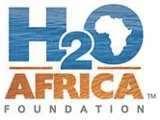This article may incorporate text from a large language model .(September 2025) |
 | |
| Formation | July 2006 |
|---|---|
| Founder | Matt Damon and Gary White of WaterPartners |
| Dissolved | July 2009 |
| Purpose | Raising money and awareness for organizations such as the United Nations Development Programme Clean Water Initiative, Living Water International, and the Millennium Promise project |
The H2O Africa Foundation was an NGO founded by Matt Damon to raise awareness about clean water initiatives in Africa. It was part of the Running the Sahara expedition and documentary project undertaken by Damon, James Moll, LivePlanet, and the Independent Producers Alliance. In July 2009, the H2O Africa Foundation merged with WaterPartners to form Water.org, an organization co-founded by Matt Damon and Gary White of WaterPartners. [1]